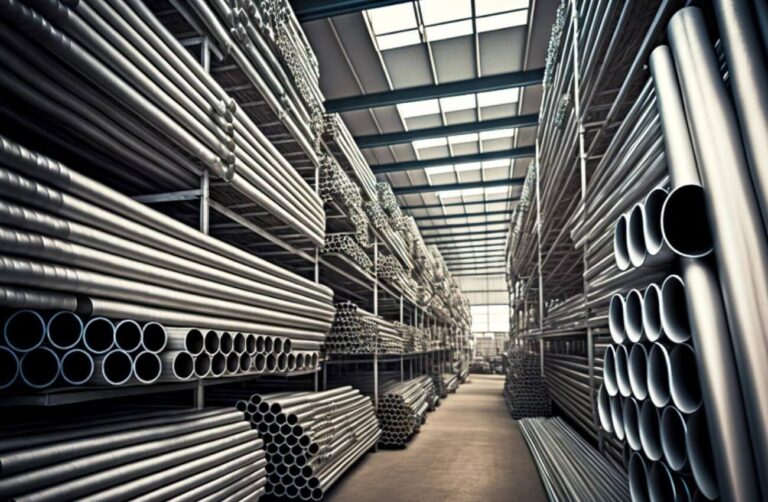- Inoxsu - Stainless Steel Solutions
Stainless Steel Pipes
Quickly responding to all kinds of malfunctions with a wide range of products suitable for various pipelines for more than 15 years.
Key Advantages
- Resistant to high temperatures.
- Resistant to decay and corrosion.
- Low pressure loss, high efficiency.
- Güvenli malzeme, çevre dostu.
Frequently Asked Questions
What is the difference between HDPE and PVC pipes?
HDPE pipes are made of high density polyethylene material and are more resistant to high temperatures and chemicals. PVC pipes, on the other hand, are lower cost and offer high rigidity and corrosion resistance. HDPE is suitable for harsher conditions, while PVC is generally used in drinking water and wastewater installations.
Why are steel pipes more preferred in the industry?
Steel pipes are ideal for high-pressure applications because they offer excellent strength, durability and ductility. They also have a higher margin of safety than cold expanded pipes and are frequently used in heavy industrial applications.
Do stainless pipes have maintenance requirements?
Stainless pipes generally require low maintenance as they have high resistance to corrosion and rust. However, it is important that they are cleaned regularly and installed correctly for long-lasting use and performance. When used in the food and chemical industry, more frequent cleaning may be required in accordance with hygiene standards.
Download Product Information
You can download the datasheet, where you can find the technical specifications of our product, from here.
Pipe
Steel, HDPE, PVC
Max 4.000 mm
300 Bar

On our Pipe Group products page, we offer high quality pipes suitable for various application areas. These pipes set industry standards with their structural features and excellent performance.
Inoxsu pipe group products provide excellent solutions in various industrial and infrastructure projects. Here are the main benefits these products offer:
- Inoxsu’s pipes are manufactured using high-quality materials, making them extremely resistant to wear, corrosion and other environmental influences.
- With various material options such as HDPE, PVC, steel and stainless steel, Inoxsu offers pipes suitable for many applications.
- Inoxsu pipes are perfectly resistant to high pressure and temperature conditions.
- Ease of Installation and Flexibility: Pipes are known for their lightweight structure and easy connection features.
- Environmentally Friendly: Inox Water pipes are produced using sustainable materials and provide energy efficiency, helping to reduce environmental impact.
HDPE (High-Density Polyethylene) pipes have superior physical and chemical properties, particularly noted for their high heat melting capacity and resistance to crack propagation.
Nowadays, these pipes, better known as the PE 100 pipe group, are produced using high-density polyethylene raw material. PE80 class products like natural gas pipes are also made from this material. HDPE pipes provide advantages in many application areas. Here are the three main benefits of HDPE pipes:
Chemical and Abrasive Resistance: HDPE pipes show excellent resistance to chemicals and abrasive substances. This feature makes them ideal for use in aggressive environments such as wastewater management and chemical transport.
Flexibility and Impact Resistance: HDPE material has a flexible structure and offers high impact resistance. These properties ensure that HDPE pipes are resistant to ground movements and other mechanical stresses, making them safe to use even in seismically active areas.
Low Maintenance Cost: HDPE pipes offer long-lasting use with low maintenance requirements. Additionally, their smooth inner surfaces minimize friction in liquid flow, which increases energy efficiency and reduces pump costs.
PVC pipes are used as wastewater pipes and fittings and are known for their resistance to various weather conditions. They are non-combustible, highly resistant, and rigid, making them a preferred choice in the construction industry. Their lightweight nature provides ease of transport and installation, and they are resistant to decay and corrosion.
They have low pressure loss, a smooth and shiny surface, high impact resistance, and are fully compatible with pressurized fittings. They are long-lasting and require no maintenance. The PVC pipes offered by InoxSu provide excellent advantages for various applications. Here are the three main benefits of PVC pipes:
Long-lasting Use: InoxSu PVC pipes are made from materials highly resistant to decay and corrosion. This allows them to be used reliably for a long time, even in challenging environments like wastewater systems.
Ease of Transport and Installation: The lightweight nature of PVC pipes facilitates easy transport and installation. InoxSu ensures that these pipes can be installed quickly and with less labor, saving time and labor costs in projects.
Energy Efficiency: The smooth inner surfaces of InoxSu PVC pipes facilitate fluid flow and minimize pressure losses. This feature increases energy efficiency in water transport systems and provides cost savings in the long run.
Steel pipes are used safely worldwide, especially in high-pressure gas and oil lines. They offer a higher safety margin compared to cold-expanded pipes due to their ductility.
Seamless drawn pipes are preferred in heavy industry based on pressure, corrosion, strength, and durability. Steel pipes are a preferred material in many industrial and infrastructure projects due to their durability and versatility.
Mechanical Strength and High Pressure Tolerance: Steel pipes possess excellent mechanical strength and high pressure tolerance, making them ideal for high-pressure applications. They provide reliability in critical infrastructure systems like oil and gas lines.
Corrosion Resistance: Steel is known for its high corrosion resistance, especially when used with appropriate coatings. This ensures that steel pipes are resistant to harsh environmental conditions and chemical exposures, making them cost-effective for long-term use with low maintenance and replacement costs.
Temperature and Fire Resistance: Steel pipes are resistant to high temperatures and fire. This feature provides safety in areas with fire hazards and is ideal for applications where hot fluids need to be transported.
Stainless steel pipes are frequently used in installation areas due to their aesthetic appearance and long-lasting durability. These pipes are especially preferred in the food and chemical industries for their resistance to density, heat, and cold.
They play a significant role in the creation and transportation of gas systems and do not corrode even when exposed to liquids in the construction sector. Stainless steel pipes offer numerous advantages for various sectors.
Corrosion Resistance: Stainless steel pipes are known for their excellent corrosion resistance. This makes them ideal for use in chemical processing, seawater applications, and acidic environments. The corrosion resistance ensures long-term use and reduces wear and tear over time.
Cleanliness and Hygiene: Stainless steel has a smooth and non-porous surface, preventing the accumulation of bacteria and other contaminants. This feature makes stainless steel pipes a preferred choice in areas where hygiene is critical, such as food processing, water supply, and medical applications.
Temperature Resistance: Stainless steel pipes can withstand very low and very high temperatures. This feature makes them ideal for systems operating across a wide temperature range, such as hot water systems, steam lines, and cryogenic applications. The pipes perform excellently against temperature changes, maintaining their structural integrity
